15 of KUOW's most memorable stories of 2023

E
ach year, KUOW brings you coverage telling the uniquely important stories of Seattle, Washington state, and the Pacific Northwest. From lucky kittens to mysterious typewriters to guerilla bike path gardeners, our staff put together a list of some of the most memorable stories we covered in 2023.
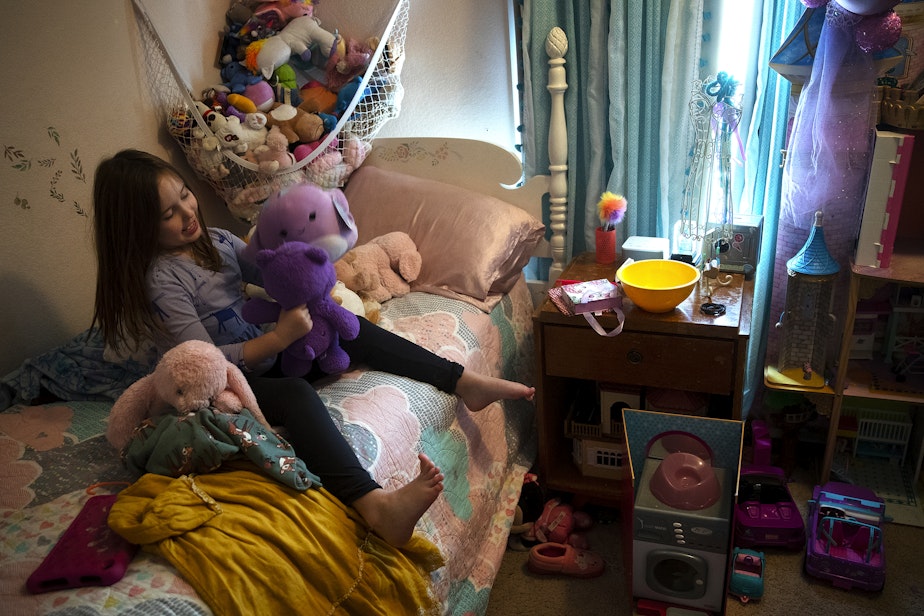
1) The second shift: Child care crisis forces families into grueling schedules
We’ve all heard child care has become wildly unaffordable and inaccessible to many parents. Child care now costs more than college tuition in Washington. Seattle is the second-most expensive city in the U.S. for new parents seeking care for their kids. Most daycares have years-long waiting lists. With this story, we wanted to humanize the numbers. We’d heard stories of how the child care crisis is reshaping the lives of everyday people in our community. It’s a human issue, but it’s also an economic issue. Parents are leaving the workforce or taking lower-paying, less desirable jobs, at a time when the country is struggling with a labor shortage.
Sponsored

2) Pickleball is growing. Is Seattle ready?
Pickleball has really taken off in recent years. It's gone from its humble origins on Bainbridge Island to becoming the fastest growing sport in the USA. There's so much new interest, hardcore players are trying to figure out how to accommodate all these new players. That was a big topic at the pickleball Seattle Open tournament in July. The floor on some of the courts that were slated for games ended up cracking shortly before the event. Tennis courts had to be converted to make up for the loss. That didn't make tennis players happy. Out-of-towners were actually surprised by Seattle's lack of pickleball courts. Didn't it come from here in the first place?
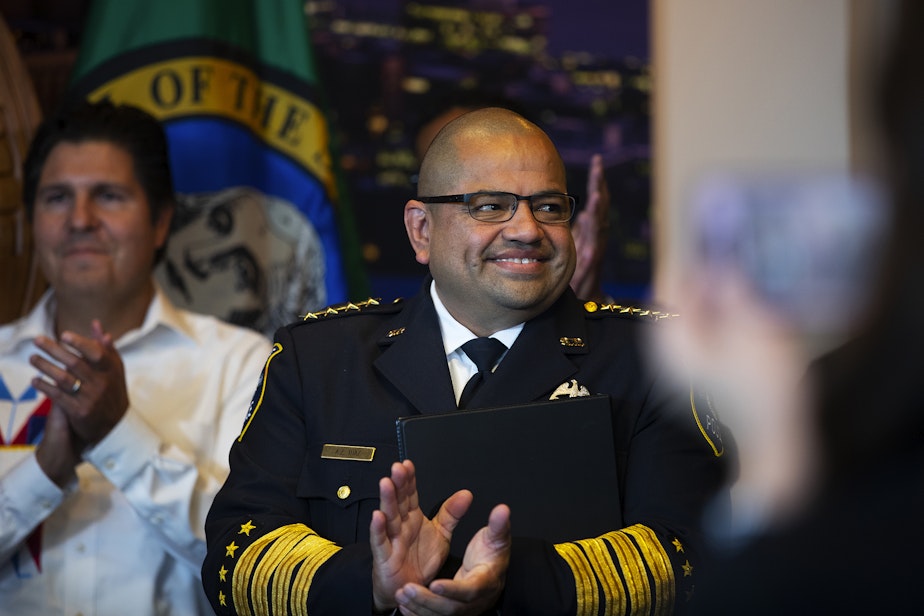
Sponsored
3) Seattle police chief's alleged relationship with employee prompts inquiries, roils department
This story involved a lot of following up on whispers, fact-checking, convincing reluctant sources to talk. We really debated for quite a long time: When does the story become something that the public should know? The fact that this rumor was having such a tremendous impact within the state's largest police department at a time when murders are at a record high here — that was something that the public should know.
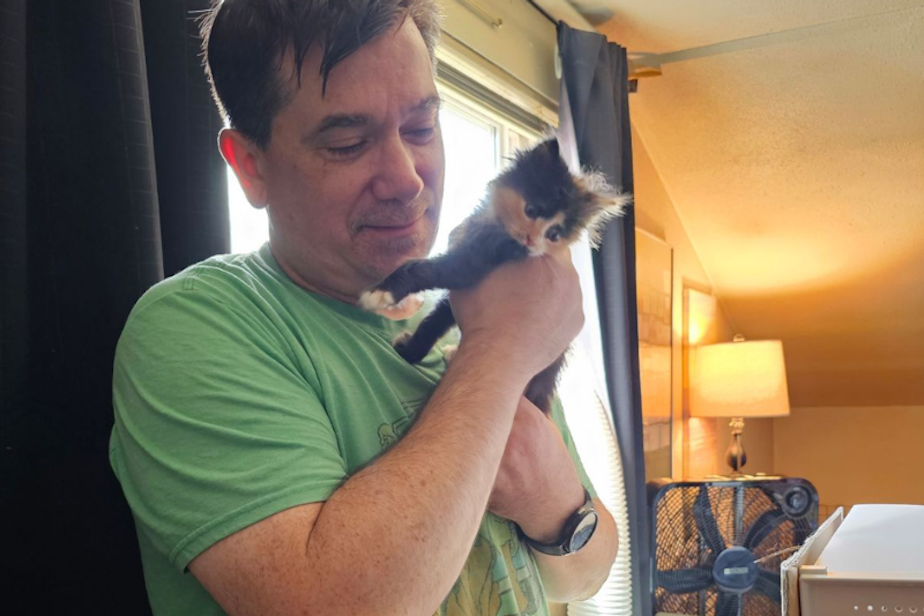
Sponsored
A lot of folks play special numbers or try to figure the odds when playing the lottery. A Tacoma postal worker may have taught us a new method — karma. One summer day, he found himself in a position to save a kitten while on his mail route. He saw it as a moment of luck, so he stopped in a shop to buy a lottery ticket. That led to winning $717,500. A kitten save and a lottery win happening on the same day … what are the odds?! At the risk of putting another kitten on the internet, we felt this local story needed to be told. It ended up being one of the most popular KUOW reports this year.

5) How Luma, an ancient cedar, has transfixed Seattle
Last summer, an undercurrent of nostalgia gripped the city, along with an uneasy feeling that old Seattle is vanishing, and that the liberal values she professes may not match the capitalist reality she manifests. Nowhere was that more present than in Wedgwood, a sleepy neighborhood in northeast Seattle, where neighbors and activists and tribal members rallied around a cedar tree they call Luma, which was under threat of being cut down. The tree was saved following fervent calls to preserve it.
Sponsored
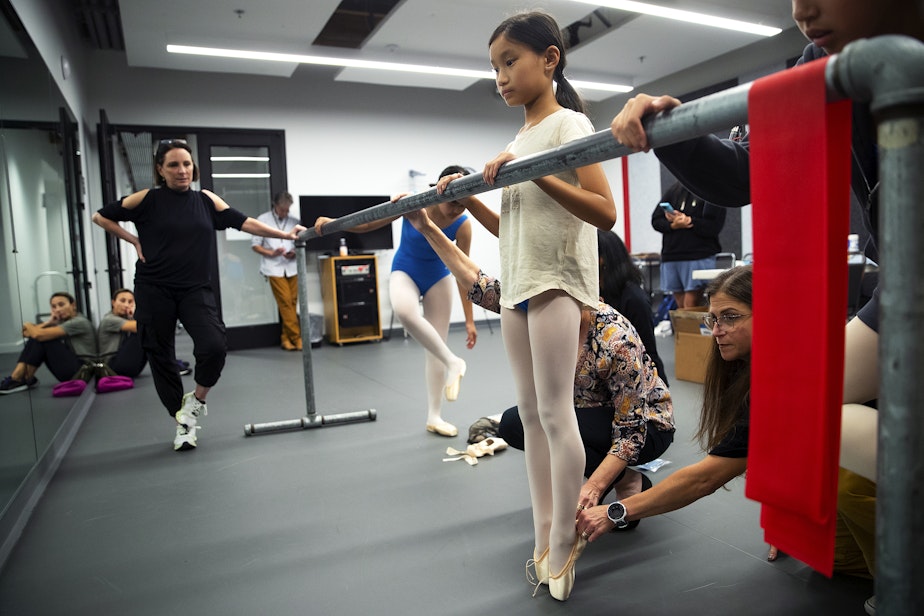
6) For these Pacific Northwest ballerinas, getting 'en pointe' is the ultimate milestone
At this dance school, young girls dream of wearing uncomfortable shoes that may only hold up for a few months — and their parents are fully supportive. This isn’t a new fashion trend. It’s the reality for young dancers at the Pacific Northwest Ballet School. KUOW got to look behind the curtain at the first in-person pointe shoe fitting for the school since 2019. Graduating to pointe is a rite of passage for ballet dancers, and finding the perfect shoes is a lifelong quest. We followed a group of 10 to 12-year-old girls as they set out on that journey.
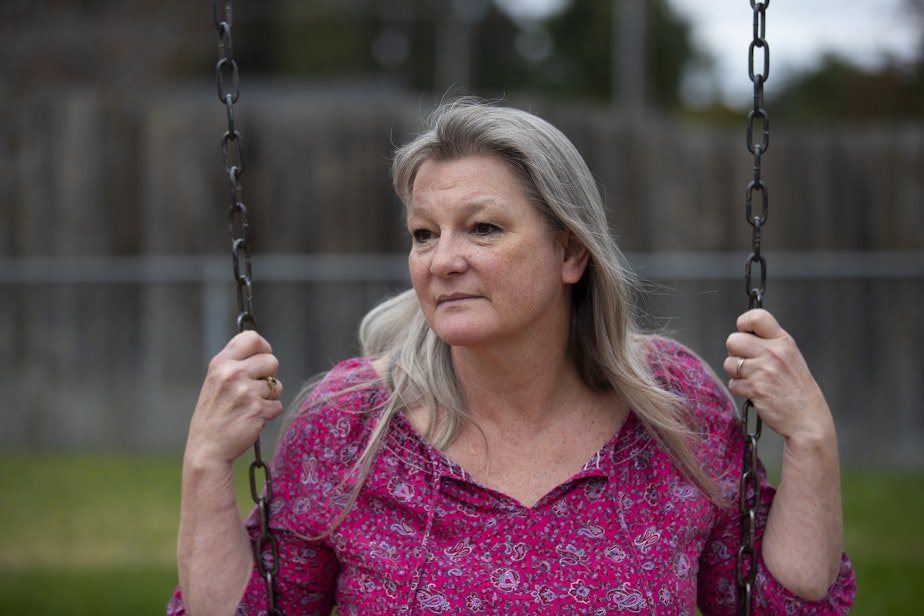
Sponsored
7) Numbing the pain: Opioid crisis on the Olympic Peninsula
KUOW took a trip to Washington’s northwest corner, which encompasses the towns of Port Angeles, Forks, and Sequim, and is home to several Native tribes. On the Olympic Peninsula, as elsewhere, the opioid epidemic started with prescription drugs — but those pills were prescribed at higher rates on the peninsula than elsewhere in Washington, partly because of work-related injuries from fishing and logging. Opioid use disorder disproportionately affects Native Americans, in large part because of intergenerational trauma, poverty, and a lack of affordable housing.
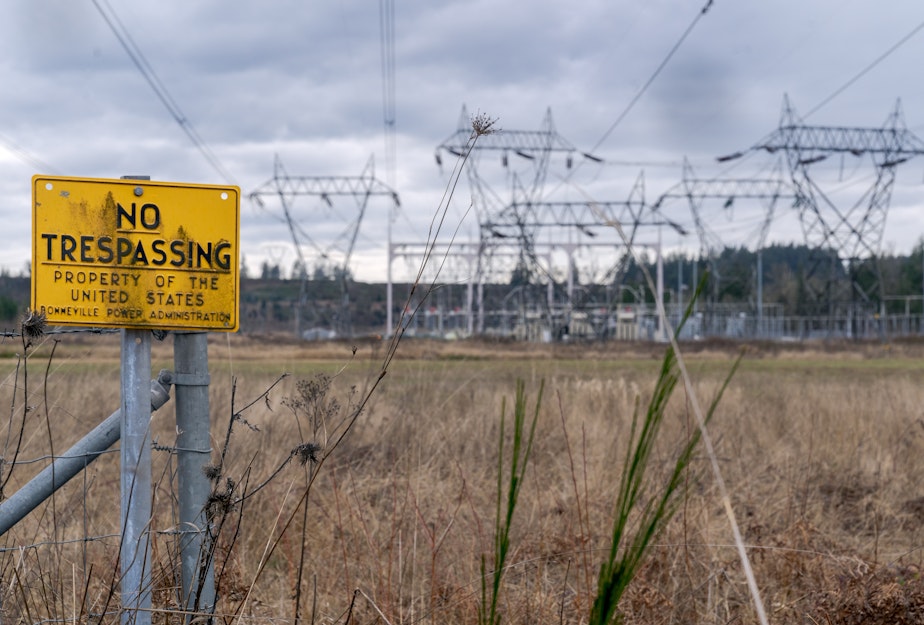
8) FBI warned of neo-Nazi plots as attacks on Northwest grid spiked
Some stories are too big for one reporter, or one station, to handle. After we learned of a series of physical attacks on the power grid in Washington and Oregon, KUOW and Oregon Public Broadcasting joined forces to investigate. Through public records requests and other deep reporting, we found that the Northwest had become a hotspot for a high-voltage, high-danger form of sabotage even as the FBI was warning utilities of white-supremacist plots against the U.S. power grid.
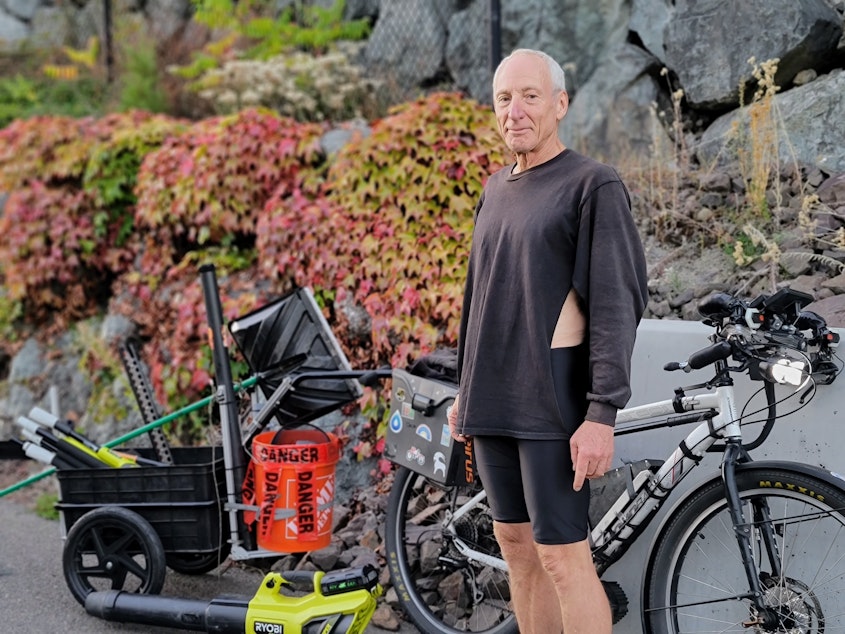
9) Meet the guerilla gardener of Seattle's 520 bike path
One cyclist on the State Route 520 bike path was tired of seeing shrubs and leaves overtaking the bike lane and decided he wasn't gonna take it anymore. That's why you might sometimes see this cyclist stop along the path pulling a trailer with a broom, shovel, and a leaf blower — battling blackberry bushes, taking vengeance on vines, and wrestling weeds. This "guerilla gardener" opted not to wait for state employees to do the job, and has been keeping things clean and tidy for a few years now.
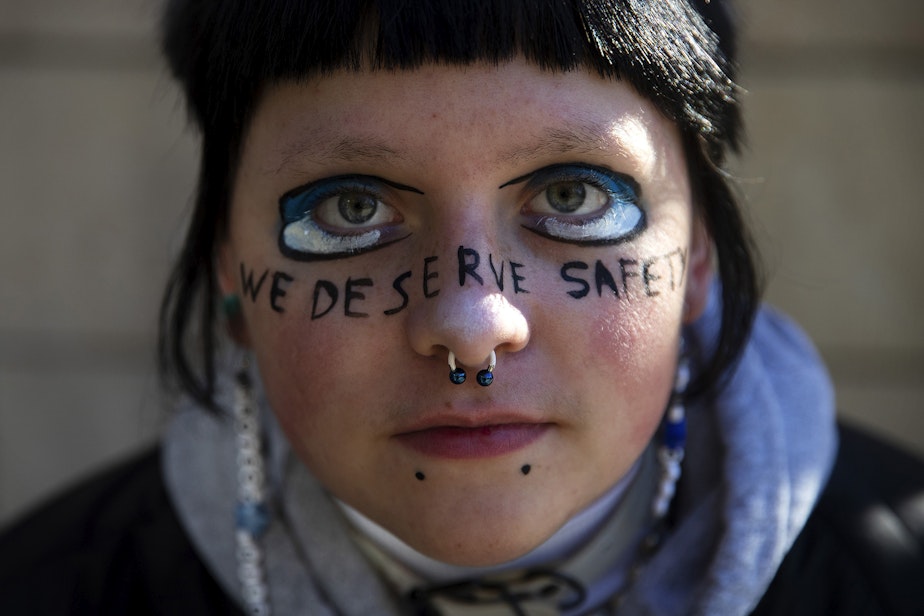
10) A year after a shooting at Seattle's Ingraham High, students remain traumatized — and they want change
In the aftermath of the pandemic, more students than ever are grappling with mental health challenges. But at Ingraham High School, the challenges are even greater. A year after 17-year-old Ebenezer Haile was shot and killed at the northside school, students told us that trauma and grief continue to haunt them. And many feel Seattle Public Schools and the city haven't done enough to support them. We thought it was important to amplify these students’ voices — not just because their experiences are heartbreaking and changes need to happen, but because those students’ resilience should be an inspiration to us all.

11) What happened when Tom Hanks' typewriter showed up at this small Bremerton shop
Despite harsh headlines and difficult issues throughout the news cycle, there are moments of unexpected joy and wonder in our own communities. These stories exist in the silver lining of journalism, not only delivering an awareness of your neighbors, but a smile. That’s what happened when a local typewriter repair shop received a mysterious package from actor Tom Hanks — and it came with instructions. For this small shop, it wasn’t just a surprise. It was an opportunity to do some good.

12) Kids at gunpoint, casino casings: How south Seattle Asian immigrants became the target of home invasions
Several news outlets were covering the home invasions in South Seattle, but we knew there were certain voices excluded from the coverage. KUOW wanted to take a more in-depth approach and speak with not only police, but the impacted victim families and also the family of the teenager who was accused of these crimes. Our end goal was providing readers with a more grounded view of the robberies.
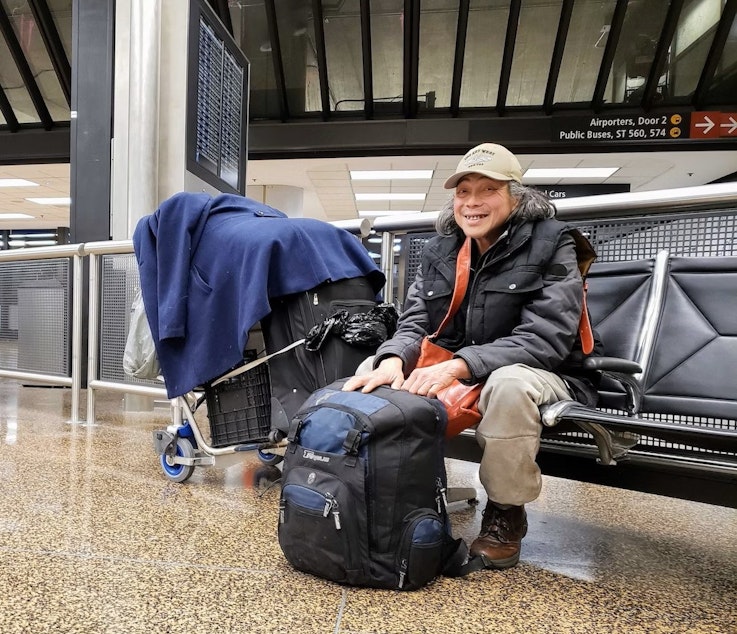
13) For some without a home, the airport is a source of shelter
It's easy to blend in at an airport. Folks are usually moving about, not sticking around for too long. That's why some have come to rely on Sea-Tac Airport as a shelter — they can blend in and get some sleep. It's also warm and it's dry. For these people, Sea-Tac is one option in a mix of less-than-ideal methods to get through the night.

14) Post-Roe, WA is a health care ‘sanctuary’ — for both patients and providers
Since the Supreme Court ended Roe and abortion became illegal or severely restricted in many states, health care providers — especially ones who focus on obstetrics — are deciding what to do next. Some are moving to states like Washington, where they can legally terminate pregnancies. Others are staying put and trying to help their patients get to Washington when they need or want an abortion. In both cases, Washington is playing an increasing role as a destination for both patients and providers.
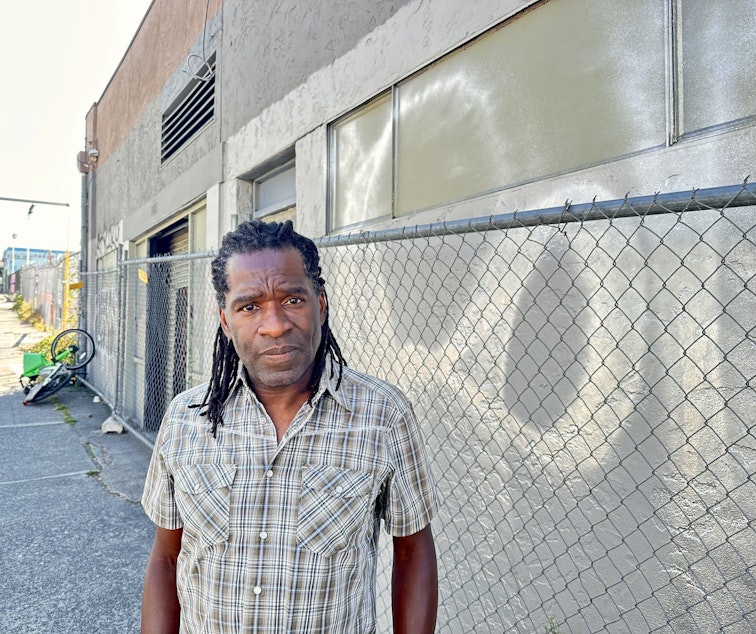
15) 'When I walk to school, I can see people shooting up.' How Seattle's drug crisis drives election debate
A listener wrote in to tell us how frustrated he was with crime and drugs in his Chinatown-International District neighborhood. He said the neighborhood always felt safe, until his daughter began sharing alarming stories about her walk to the school. His account spoke to the reason why drug policy was at the center of this year’s city council races. Sometimes the perfect story subject just falls into your lap.

